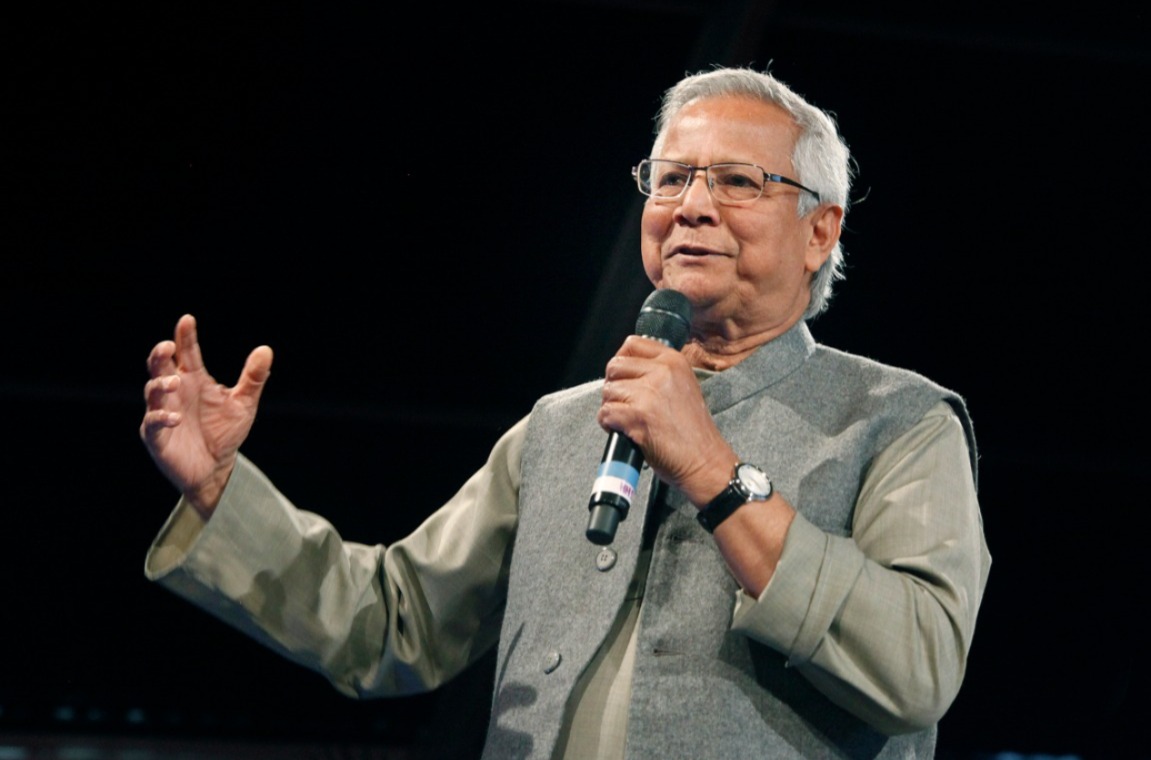Dhaka: Bangladesh’s political climate saw renewed intensity as the country’s top three political parties, the Bangladesh Nationalist Party (BNP), Jamaat-e-Islami, and the National Citizen Party (NCP), collectively pressed the interim government for a definitive election timeline. However, sources revealed that Chief Advisor Muhammad Yunus offered “no specific response” during a crucial meeting held at his official residence.
The BNP reiterated its demand for national elections to be held between December 2025 and June 2026, and called for the removal of three members of the Advisory Council, student leaders Asif Mahmud and Mahfuj Alam, along with National Security Adviser Khalilur Rahman. BNP leader Khandker Mosharraf Hossain told reporters that the party had submitted a written memorandum outlining their concerns and demands.
“We want justice, and an independent judiciary. The remaining trials will continue even if BNP comes to power,” Hossain stated, warning that delays in announcing an election roadmap could trigger fears of authoritarian resurgence.
BNP Standing Committee member Amir Khasru Mahmud Chowdhury emphasized that reforms must be based on political consensus and that elections before December were “feasible.” Fellow member Salahuddin Ahmed echoed the demand for advisor resignations.
Chief Advisor Yunus later held separate meetings with Jamaat-e-Islami and the NCP. Jamaat leaders reportedly supported Yunus' tentative election window while pressing for judicial action against Awami League members allegedly involved in the July uprising. They stressed a level playing field and inclusivity in the upcoming elections.
The NCP, meanwhile, proposed a comprehensive list of demands, including the reconstitution of the Election Commission, conducting local body polls before parliamentary elections, and parallel frameworks for reforms, justice processes, and constituent assembly preparations.
These high-level discussions occurred just days after Yunus publicly expressed frustration over ongoing protests and hinted at resigning. In a statement released Saturday, the interim administration warned that unrest was hampering governance and spreading confusion.
The Advisory Council reiterated its commitment to constitutional duties and warned that persistent obstruction, whether from internal dissent or foreign interference, could force the administration to reevaluate its course of action in consultation with the people.
Meanwhile, tensions escalated on the ground as government employees continued to lay siege to the Secretariat in Dhaka, protesting the proposed dissolution of the National Board of Revenue (NBR).
In a bid to reassure the public, Chief Advisor’s Press Secretary Shafiqul Alam stated that all major parties had endorsed the conduct of elections under Yunus' leadership.
“He is a man of his word. What he says, he does,” Shafiqul told the media, reaffirming the government’s commitment to holding elections between December and June as part of its promise to restore democratic governance.
Let the Truth be known. If you read VB and like VB, please be a VB Supporter and Help us deliver the Truth to one and all.
New Delhi (PTI): Police here have busted a crime syndicate involved in traffic fraud and extortion, arresting three people including the alleged mastermind who sold fake stickers to help commercial vehicles bypass no-entry restrictions, an official said on Saturday.
The police said they dismantled a third organised syndicate linked to traffic-related frauds, with the arrest of Rinku Rana alias Bhushan, his associate Sonu Sharma and Mukesh Kumar alias Pakodi, who was also connected to another extortion syndicate.
According to the police, Rinku Rana was running a well-organised network that facilitated the movement of commercial goods vehicles during restricted hours by selling fake 'marka' or stickers for Rs 2,000 to Rs 5,000 per vehicle every month. The stickers were falsely projected as authorisation to evade traffic challans.
During raids, the police recovered Rs 31 lakh in cash, property documents worth several crores of rupees, over 500 fake stickers and six mobile phones allegedly used to operate the syndicate.
The crackdown followed a complaint filed by a traffic police officer in April this year after a commercial vehicle tried to evade checking by producing a fake sticker claiming exemption from enforcement action.
Investigation revealed that social media groups were being used to coordinate the illegal movement of vehicles and alert drivers about traffic police checkpoints, police said.
"A parallel system was being run to cheat drivers and vehicle owners while undermining traffic enforcement. On the basis of evidence, provisions related to organised crime under the BNS were invoked," a senior police officer said.
Sonu Sharma, the police said, managed social media groups through which stickers were sold and real-time alerts were circulated regarding traffic police movement. He also acted as a link between Rana and drivers operating in the field.
In a related development, Mukesh Kumar alias Pakodi, an associate of Rajkumar alias Raju Meena, who was earlier arrested under the Maharashtra Control of Organised Crime Act (MCOCA), was also apprehended.
Mukesh allegedly helped extort money from transporters and was involved in blackmailing traffic police personnel by recording enforcement actions, the police said.
Investigators alleged the syndicate led by Rajkumar deployed drivers to deliberately violate traffic rules and secretly record police officials during challans, later using manipulated videos to extort money under threat of false allegations.
The police said that in total, eight accused belonging to three different organised crime syndicates linked to traffic frauds and extortion have been arrested so far.
Further investigation is underway to trace the remaining members, conduct financial probes, and analyse digital evidence recovered during the raids, officials added.





